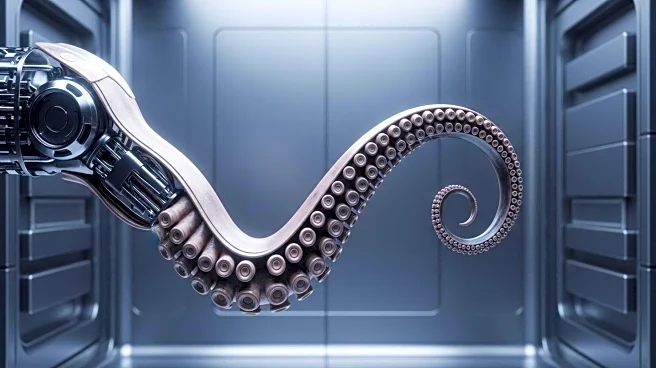What's Happening?
Scientists at the Woods Hole Oceanographic Institution and Florida Atlantic University have conducted research on octopus arm usage, revealing preferences for certain tasks with specific arms. The study, based on video analysis in the wild, found that octopuses often use their front arms for exploration and their back arms for movement. This research fills a gap in understanding octopus behavior outside of lab settings, providing insights into their natural interactions.
Why It's Important?
The findings have significant implications for the development of soft robotics, which can mimic the flexible and adaptive movements of octopus arms. Such advancements could lead to innovations in medical applications and ocean exploration technologies. Understanding octopus behavior also contributes to broader scientific knowledge of cephalopods, potentially influencing conservation efforts and marine biology research.
What's Next?
Further research may explore additional aspects of octopus behavior and their applications in robotics. Scientists aim to deepen their understanding of cephalopod movement, which could lead to breakthroughs in technology and marine studies. The study's findings may inspire new designs in robotics, enhancing their functionality and adaptability.








